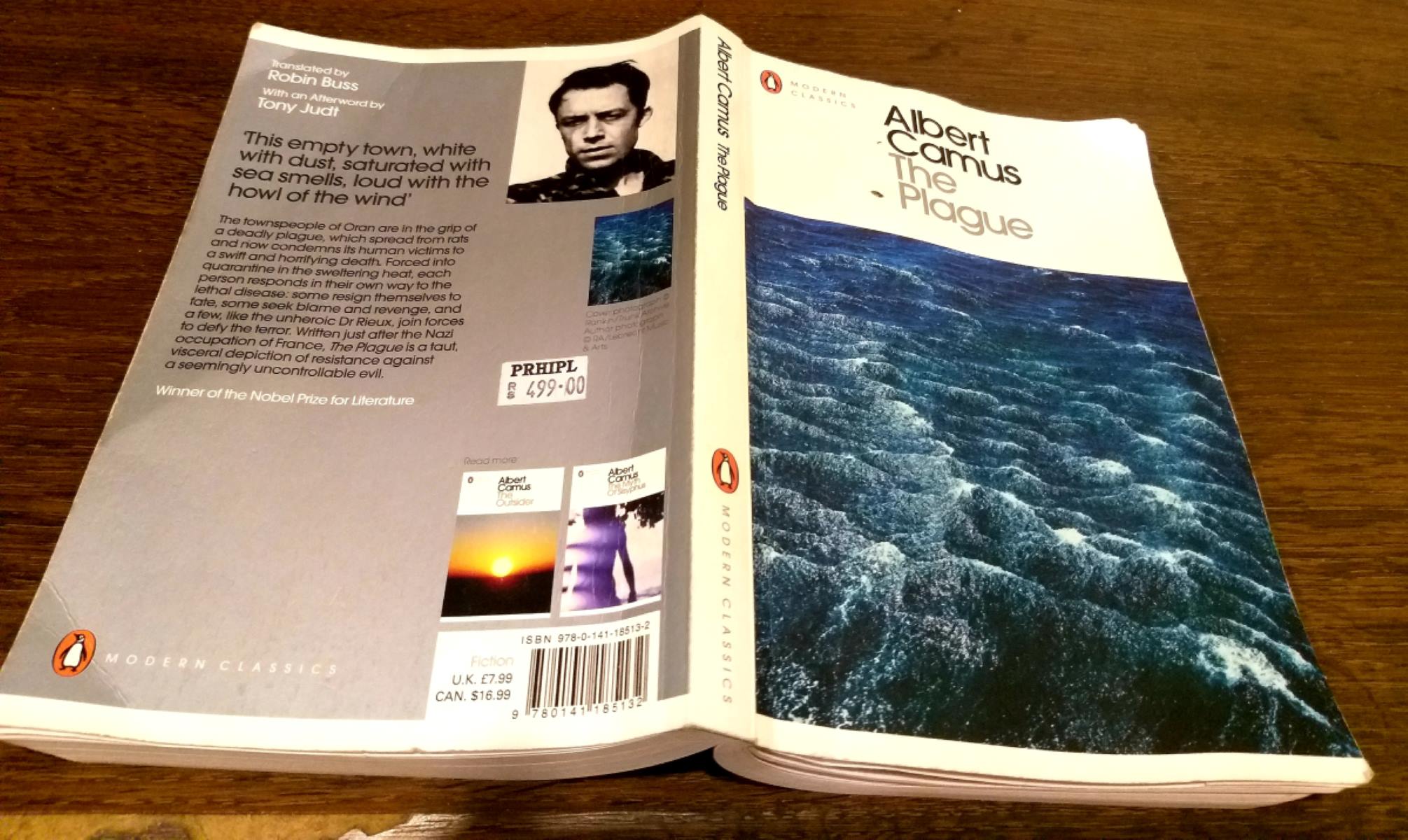
The Plague, a novel written by the renowned French author Albert Camus, is a thought-provoking and gripping work of literature that explores the themes of suffering, isolation, and the human condition. Camus masterfully captures the essence of the plague, a deadly infectious disease that ravages the city of Oran in Algeria, and examines the profound impact it has on the lives of its inhabitants. In this article, we will delve into 11 astonishing facts about The Plague and its significance in Camus’ body of work. From the historical context to the philosophical underpinnings, we will explore the different facets of the novel and shed light on its timeless relevance. So, prepare to be captivated by these surprising insights about The Plague as we delve into the genius of Albert Camus.
Key Takeaways:
- The Plague by Albert Camus explores the meaning of life and human suffering through a fictional town’s struggle with a deadly epidemic, offering timeless insights into the human condition.
- Inspired by real events, The Plague delves into the complexities of morality and the absurdity of existence, resonating with readers worldwide and solidifying Camus’ literary legacy.
The Plague is a seminal work by Albert Camus.
Considered one of Camus’ most celebrated novels, The Plague delves into the themes of existentialism, human suffering, and the absurdity of life. Set in the fictional town of Oran, the story follows the outbreak of a deadly plague and the societal and psychological impact it has on its inhabitants.
The Plague was first published in 1947.
This thought-provoking novel was published in French as “La Peste” and quickly gained international recognition for its haunting depiction of a community grappling with a devastating epidemic.
Albert Camus drew inspiration from real-life events.
Camus was heavily influenced by the cholera epidemic that struck Oran, Algeria, in This historical event served as a backdrop for his exploration of the human condition in times of crisis.
The Plague explores the concept of absurdism.
Camus, a prominent figure in existential philosophy, delves into the meaninglessness and irrationality of human existence through the lens of the plague. The novel raises questions about the nature of suffering and the search for purpose in a chaotic world.
The Plague is populated with memorable characters.
From the dedicated and selfless Dr. Bernard Rieux to the enigmatic and controversial figure of Joseph Grand, the novel introduces a diverse cast of characters who face the plague with varying degrees of resilience and vulnerability.
The Plague examines the nature of morality.
As the town grapples with the devastating consequences of the plague, ethical dilemmas arise. Camus explores the complexities of individual and collective responsibility, as characters are forced to make difficult decisions in the face of extreme circumstances.
The Plague is a reflection on the human condition.
Camus uses the plague as a metaphor for the inherent struggle and suffering that humans endure throughout their lives. The novel encourages readers to confront the fundamental questions of existence and their own mortality.
The Plague remains relevant to contemporary society.
Despite being published over seven decades ago, The Plague continues to resonate with audiences today. Its exploration of human nature, resilience, and the impact of societal crises remains strikingly applicable to the modern world.
The Plague is a work of literary significance.
Recognized as a masterful piece of literature, The Plague has been studied in classrooms and universities worldwide. It stands as a testament to Camus’ skill in crafting thought-provoking narratives that transcend time and place.
Translated into numerous languages, The Plague has reached a global audience.
Camus’ novel has been translated into multiple languages, allowing readers from different cultures and backgrounds to engage with its powerful themes and messages. Its impact and influence have made it a staple in literary canon worldwide.
The Plague solidified Albert Camus’ legacy.
With its philosophical depth and powerful storytelling, The Plague cemented Camus’ status as a literary heavyweight and existentialist thinker. It remains a testament to his unique perspective on the human experience.
Conclusion
In conclusion, delving into the world of the plague through the works of Albert Camus is a truly captivating experience. Through his writing, we are able to gain a deeper understanding of the devastating impact of the plague on individuals and society as a whole. Camus’s exploration of existentialism and the human condition in the face of adversity resonates with readers and forces us to confront our own mortality and the fragility of our existence.The vivid descriptions of the plague’s relentless grasp and its profound psychological and societal effects offer a chilling reminder of the havoc that disease can wreak upon humanity. The works of Albert Camus serve as powerful reminders of the importance of remaining vigilant in the face of uncertainty and the need for solidarity and compassion during times of crisis.By shedding light on the devastating impacts of the plague, Camus prompts us to reflect on our own lives, our values, and our relationships. In doing so, we are reminded of the resilience of the human spirit and the potential for growth and transformation even in the midst of unimaginable suffering.
FAQs
1. Who was Albert Camus?
Albert Camus was a French philosopher, author, and journalist known for his contributions to existentialism and his exploration of the human condition.
2. What is the significance of his works about the plague?
Camus’s works about the plague highlight the existential struggles faced by individuals in the face of adversity, forcing readers to confront their own mortality and reflect on the fragile nature of human existence.
3. What are some of the key themes explored in Camus’s writings on the plague?
Some key themes explored in Camus’s writings on the plague include the absurdity of life, the necessity of solidarity, the limits of individual agency, and the search for meaning in a seemingly chaotic world.
4. How do Camus’s works about the plague resonate with readers?
Camus’s vivid descriptions of the plague’s devastating effects and his exploration of existentialism resonate with readers by prompting them to reflect on their own lives, values, and relationships, and consider the potential for growth and transformation in the face of adversity.
5. How do Camus’s works about the plague contribute to our understanding of disease outbreaks?
Camus’s works serve as a powerful reminder of the societal and psychological impacts of disease outbreaks, shedding light on the ways in which they can disrupt lives, challenge societal structures, and prompt existential questioning.
6. What is the overall message conveyed in Camus’s writings on the plague?
The overall message conveyed in Camus’s writings on the plague is the importance of remaining vigilant, showing solidarity, embracing compassion, and finding meaning in the face of adversity and uncertainty.
If you're fascinated by existential themes and philosophical musings, consider exploring other thought-provoking works. Hermann Hesse's philosophical novel Siddhartha delves into spiritual enlightenment and self-discovery. For a chilling look at real-life crises, our article on epidemic facts surrounding the coronavirus offers eye-opening insights. Alternatively, immerse yourself in the poignant exploration of the human condition in the acclaimed film "The Human Condition I: No Greater Love."
Was this page helpful?
Our commitment to delivering trustworthy and engaging content is at the heart of what we do. Each fact on our site is contributed by real users like you, bringing a wealth of diverse insights and information. To ensure the highest standards of accuracy and reliability, our dedicated editors meticulously review each submission. This process guarantees that the facts we share are not only fascinating but also credible. Trust in our commitment to quality and authenticity as you explore and learn with us.


